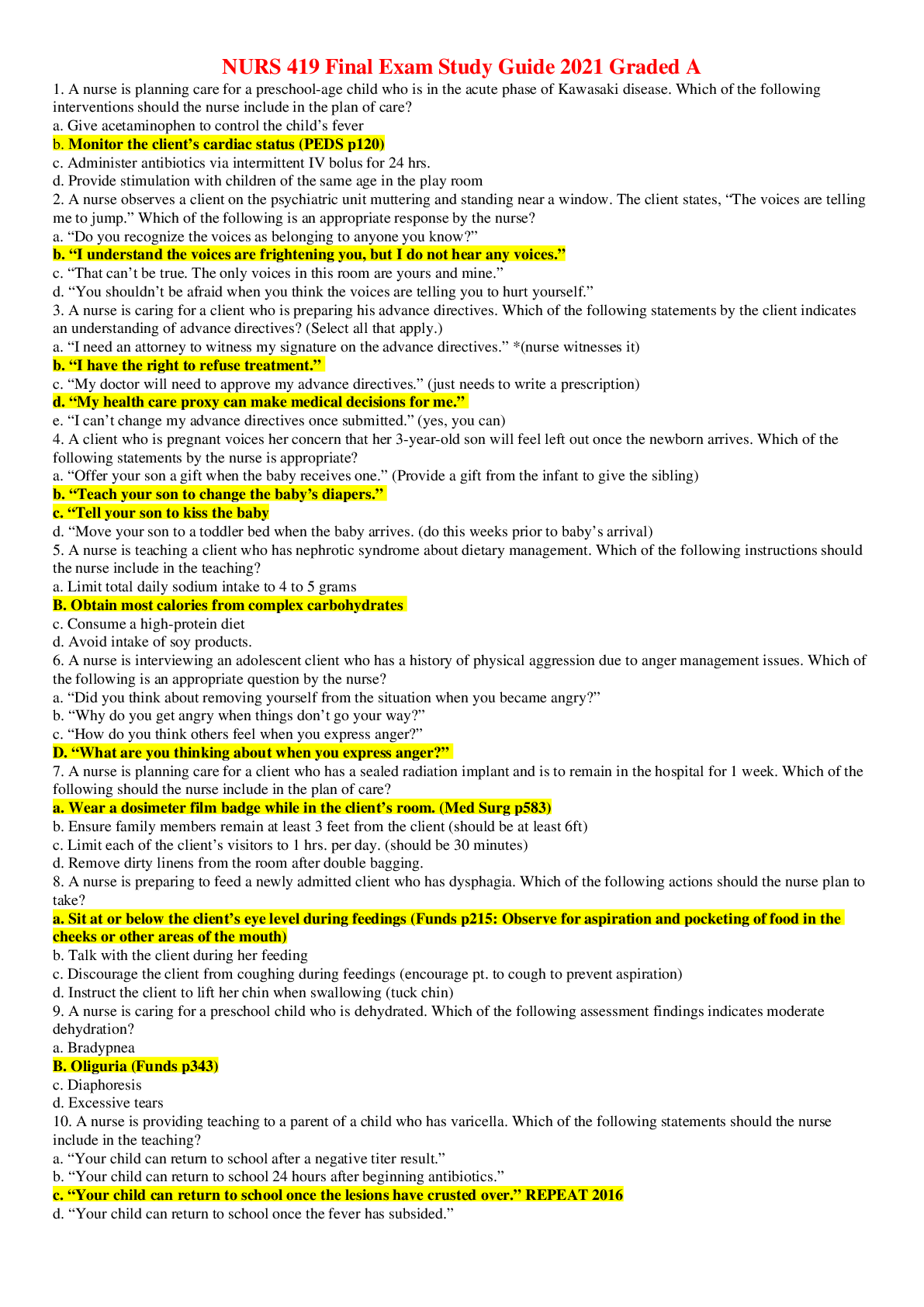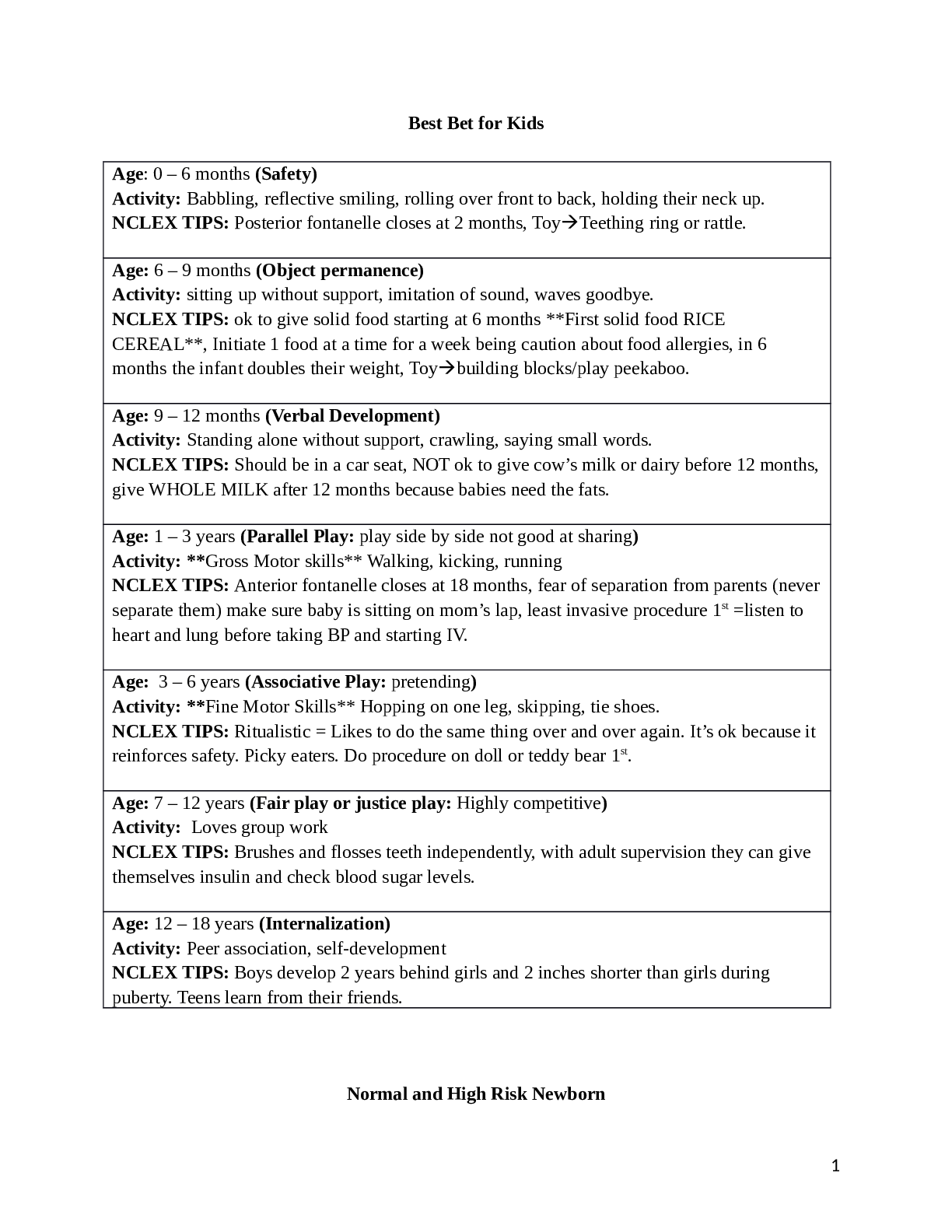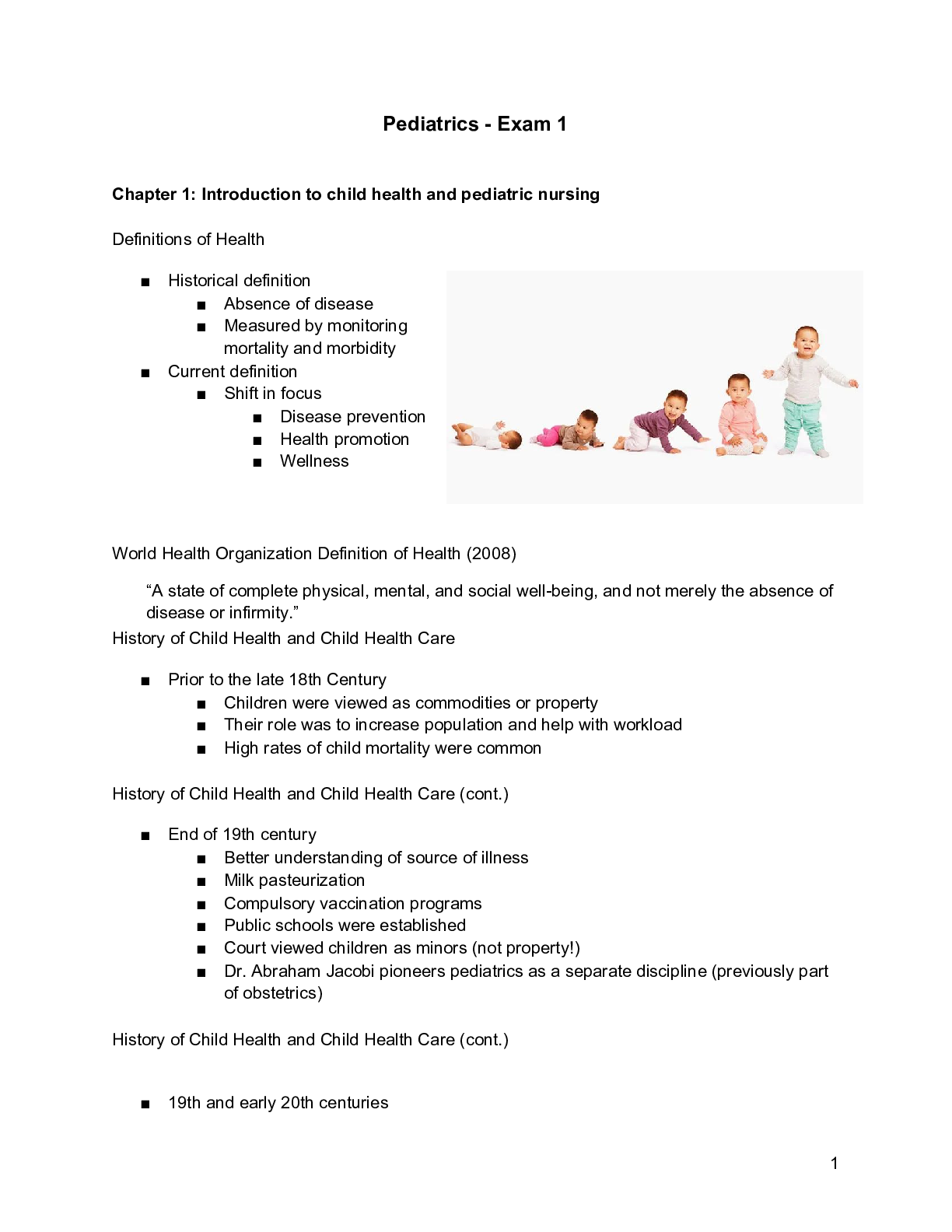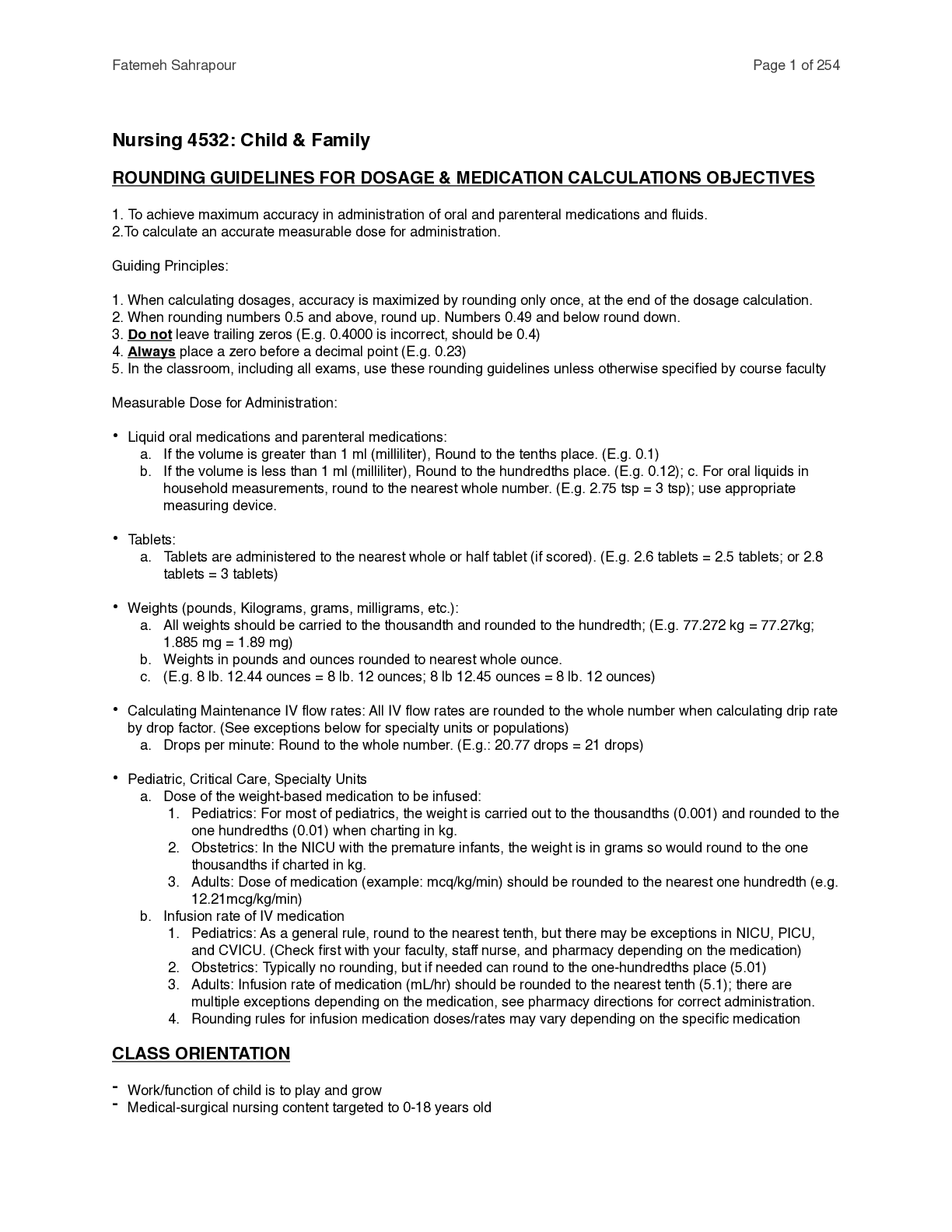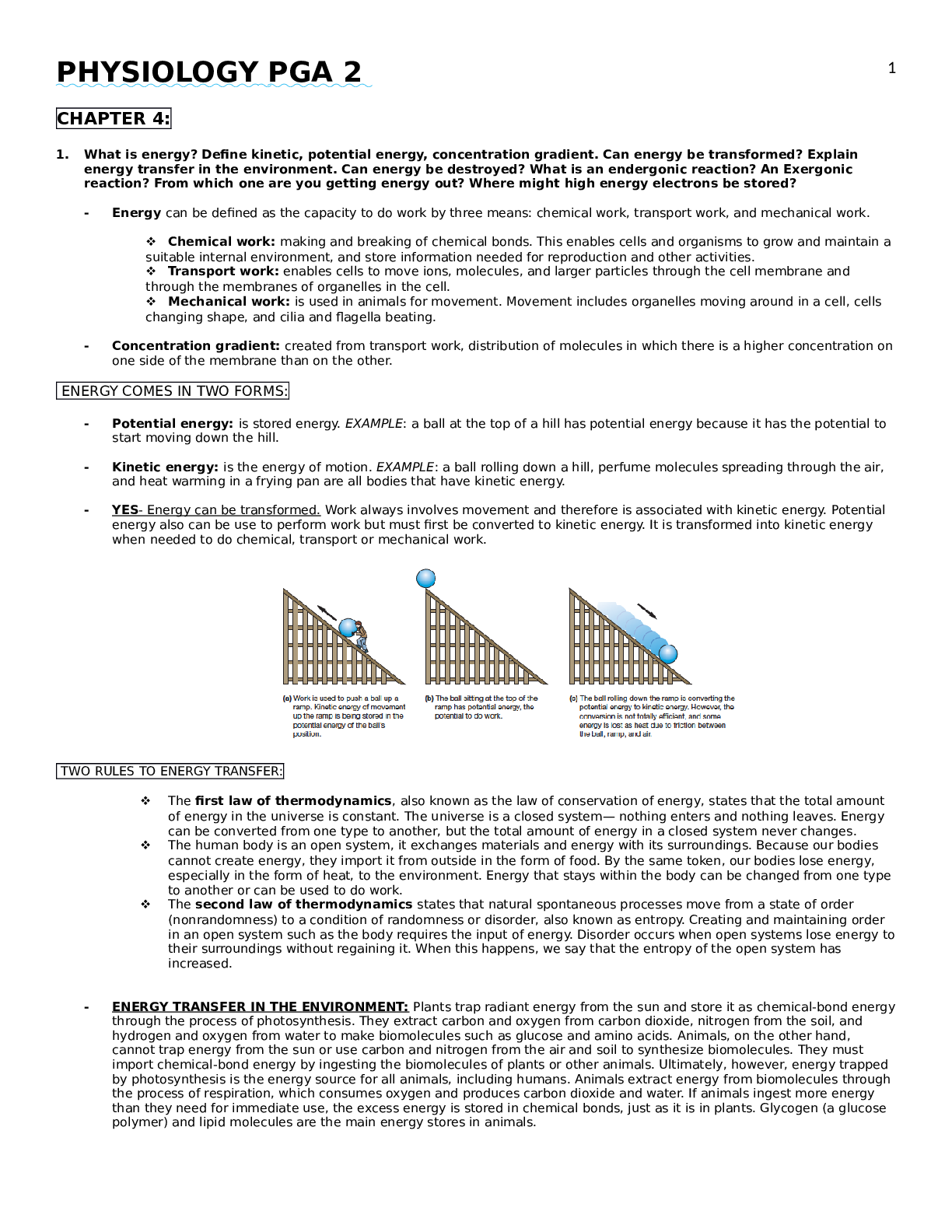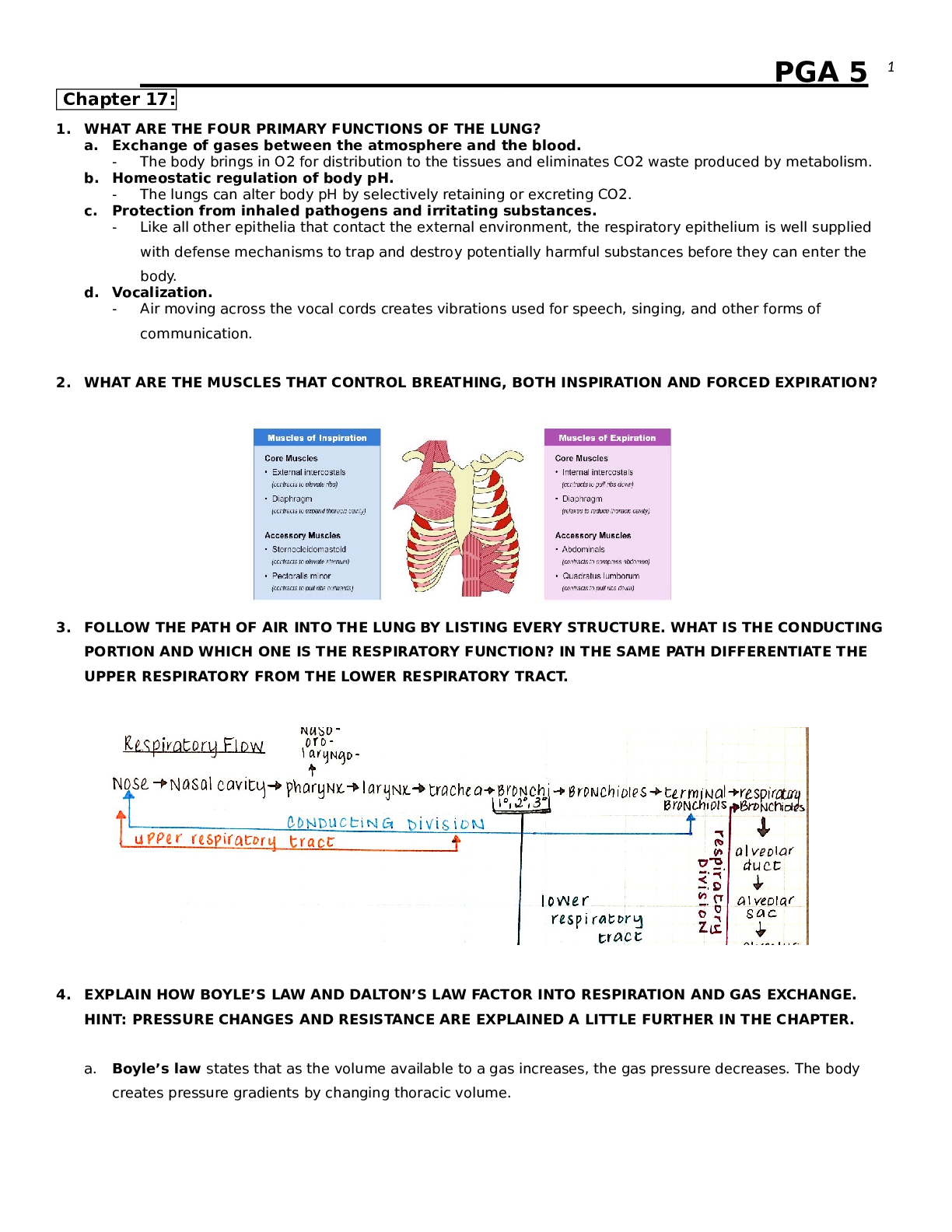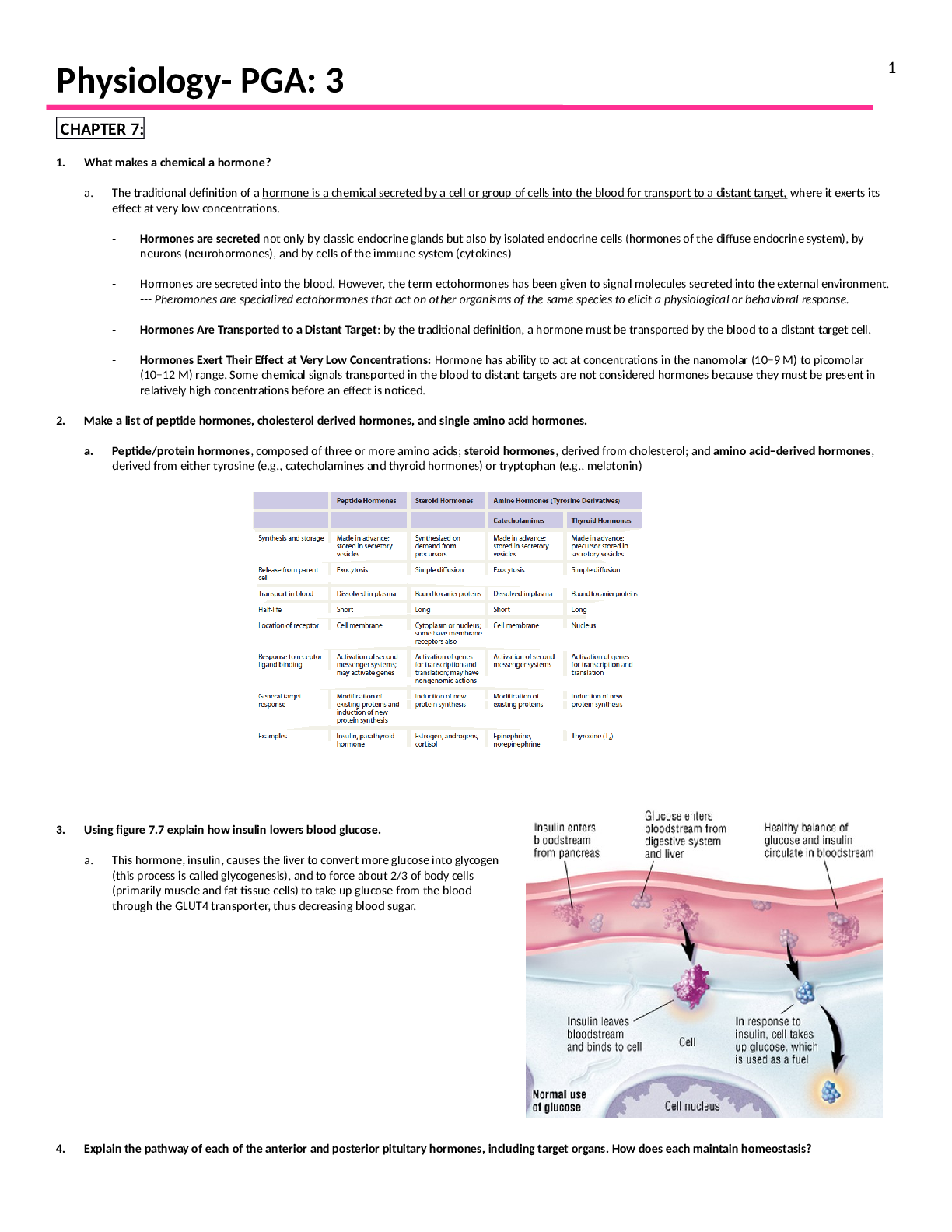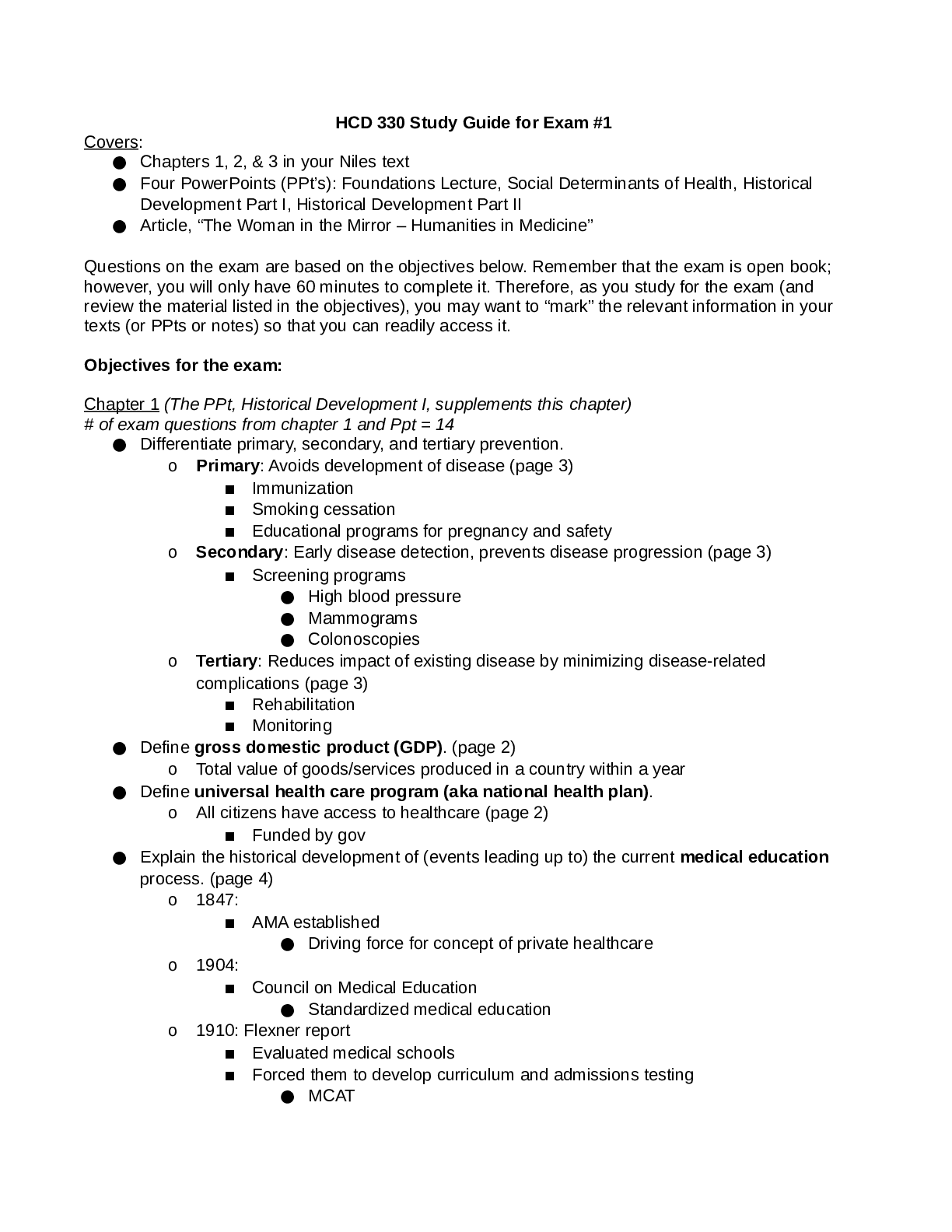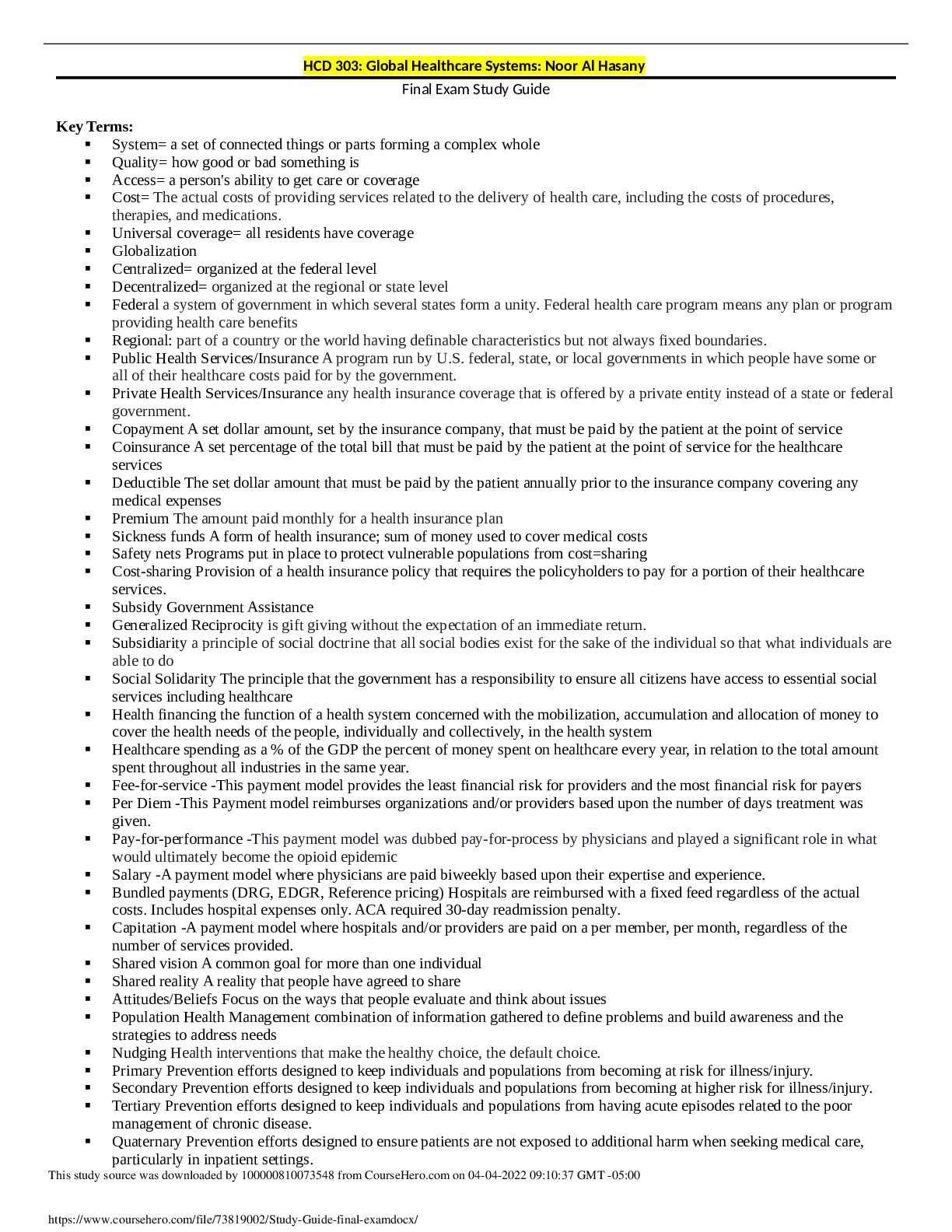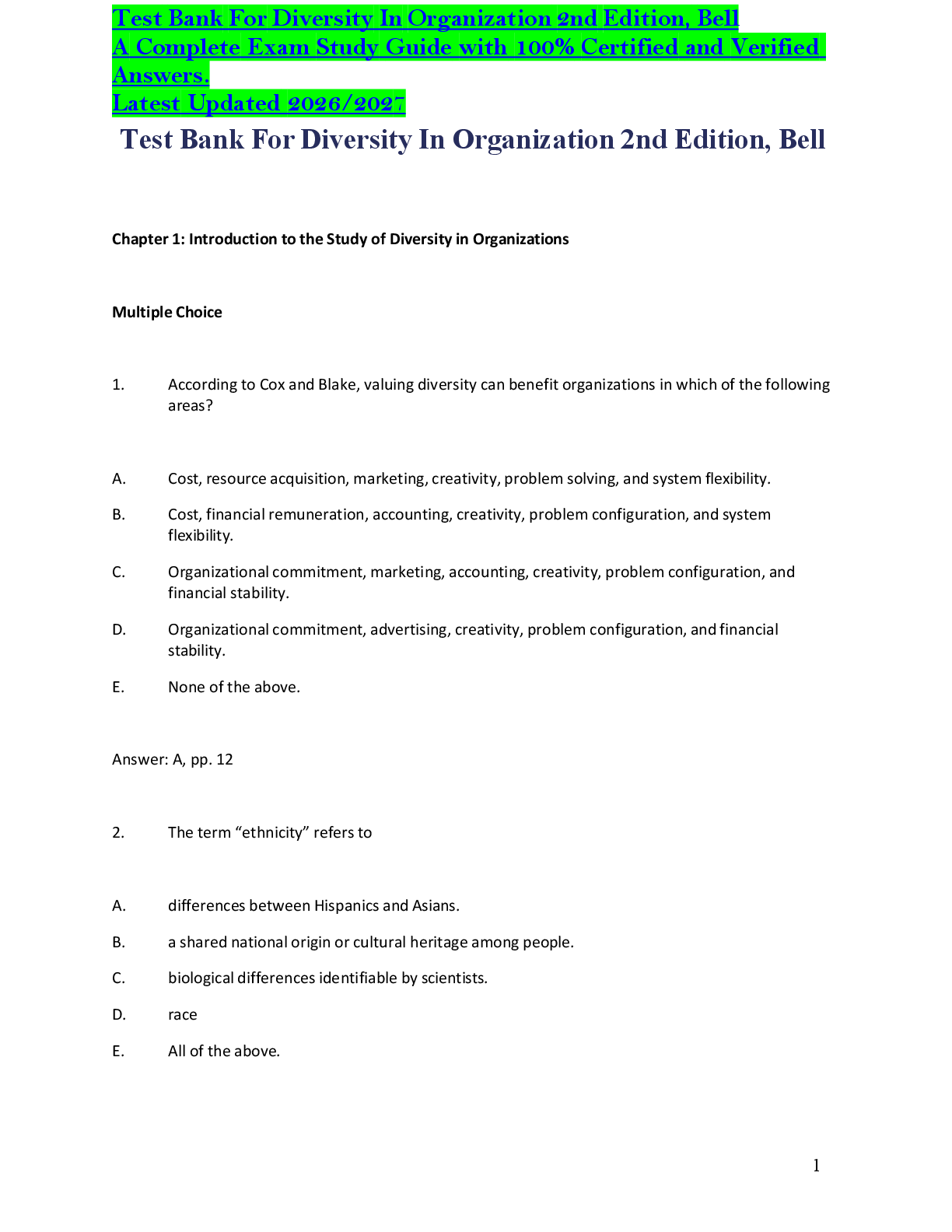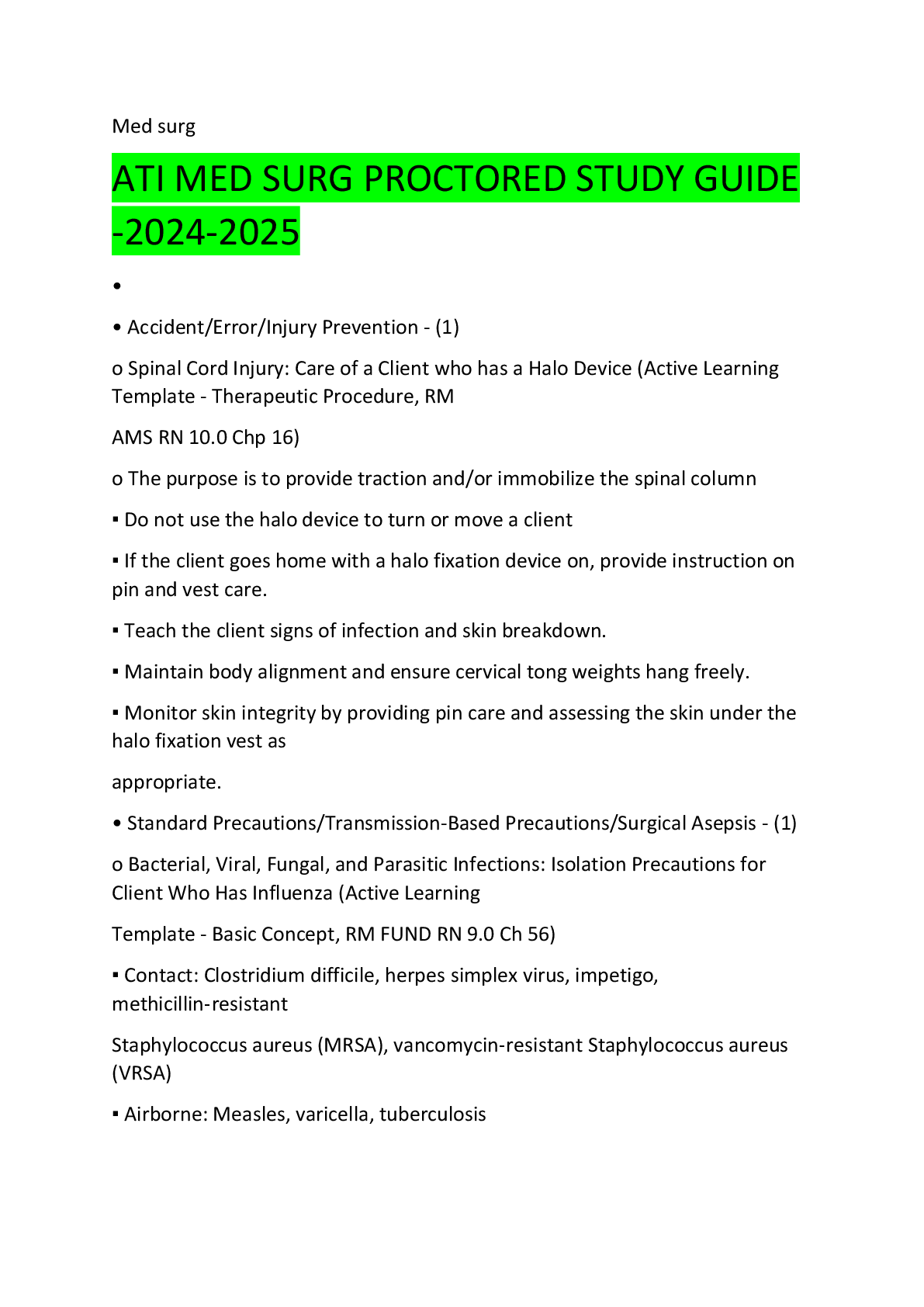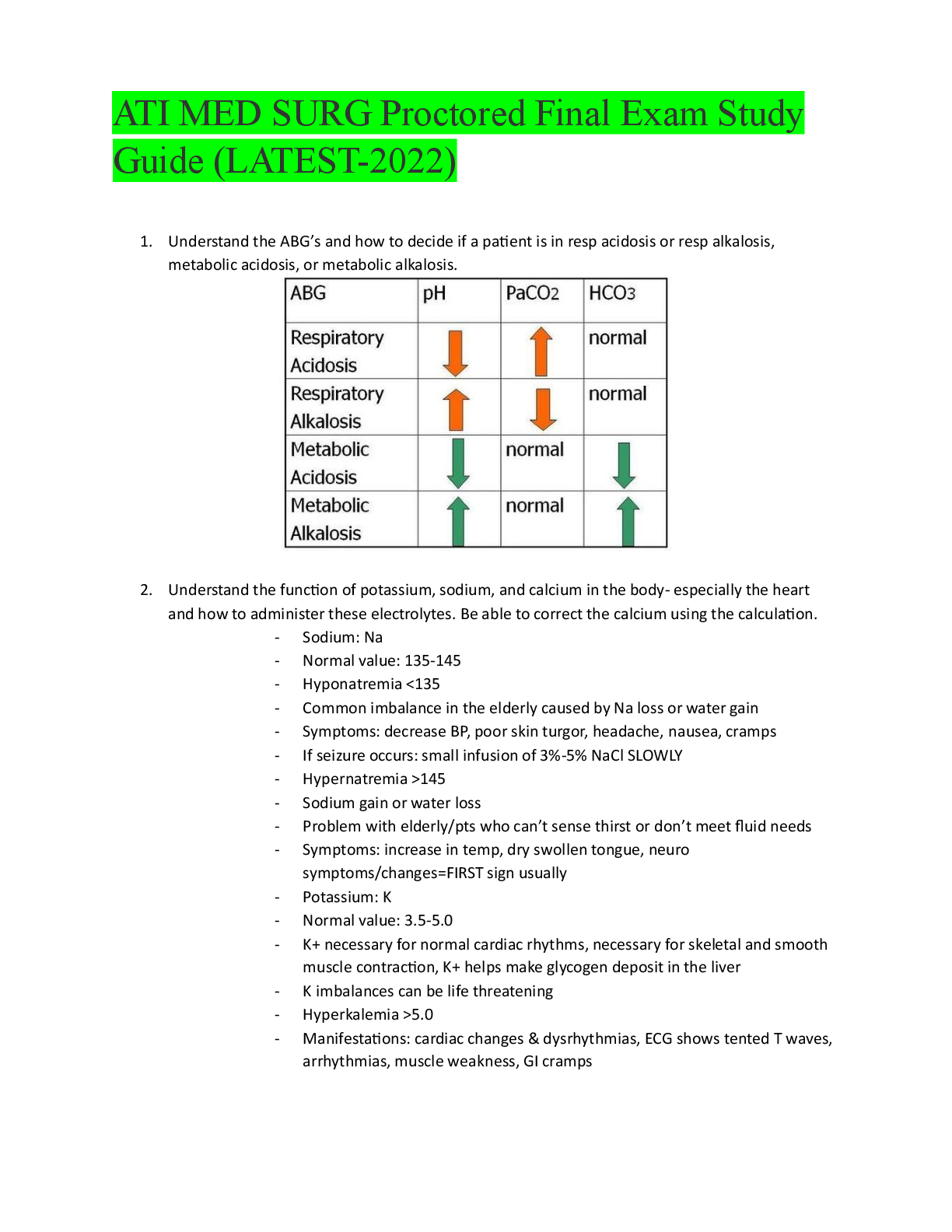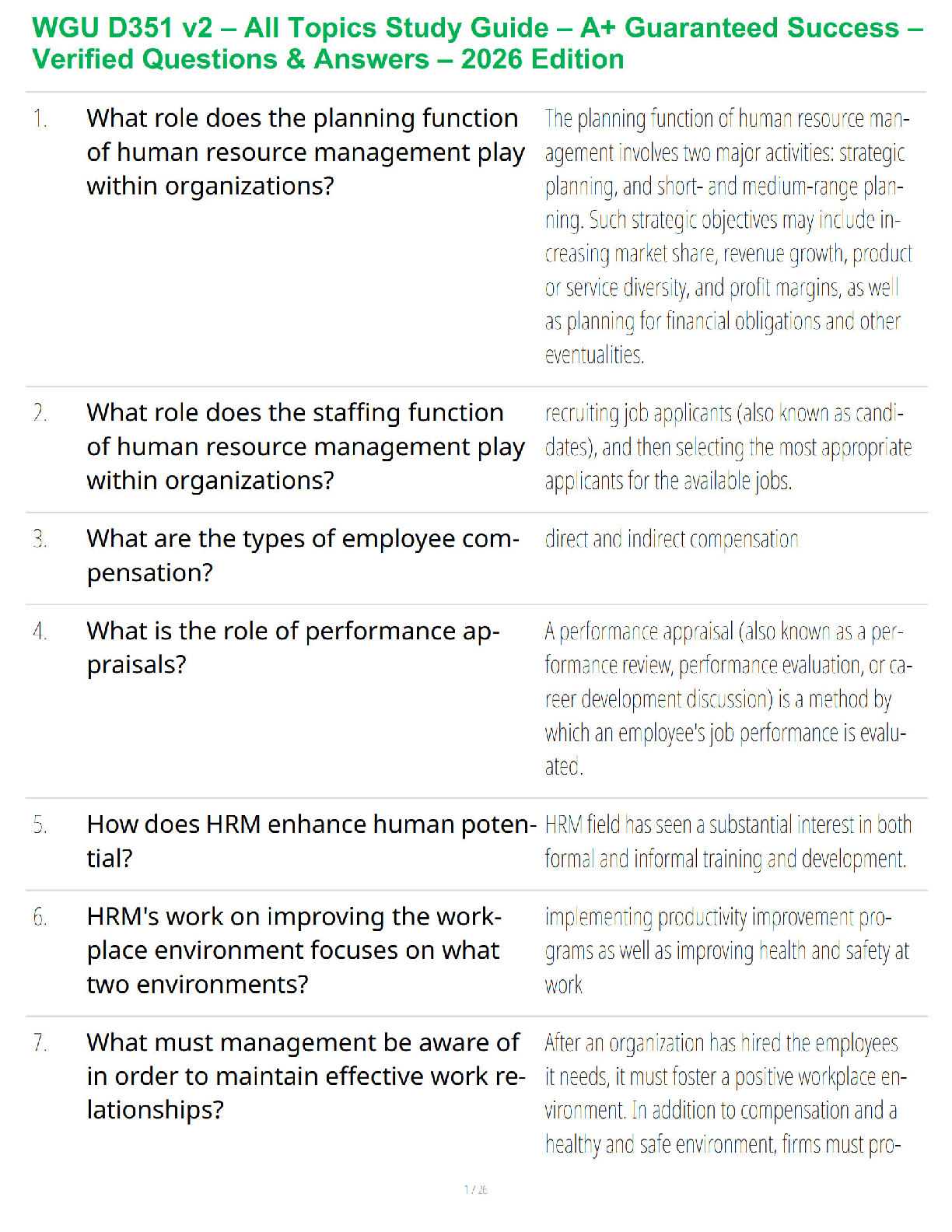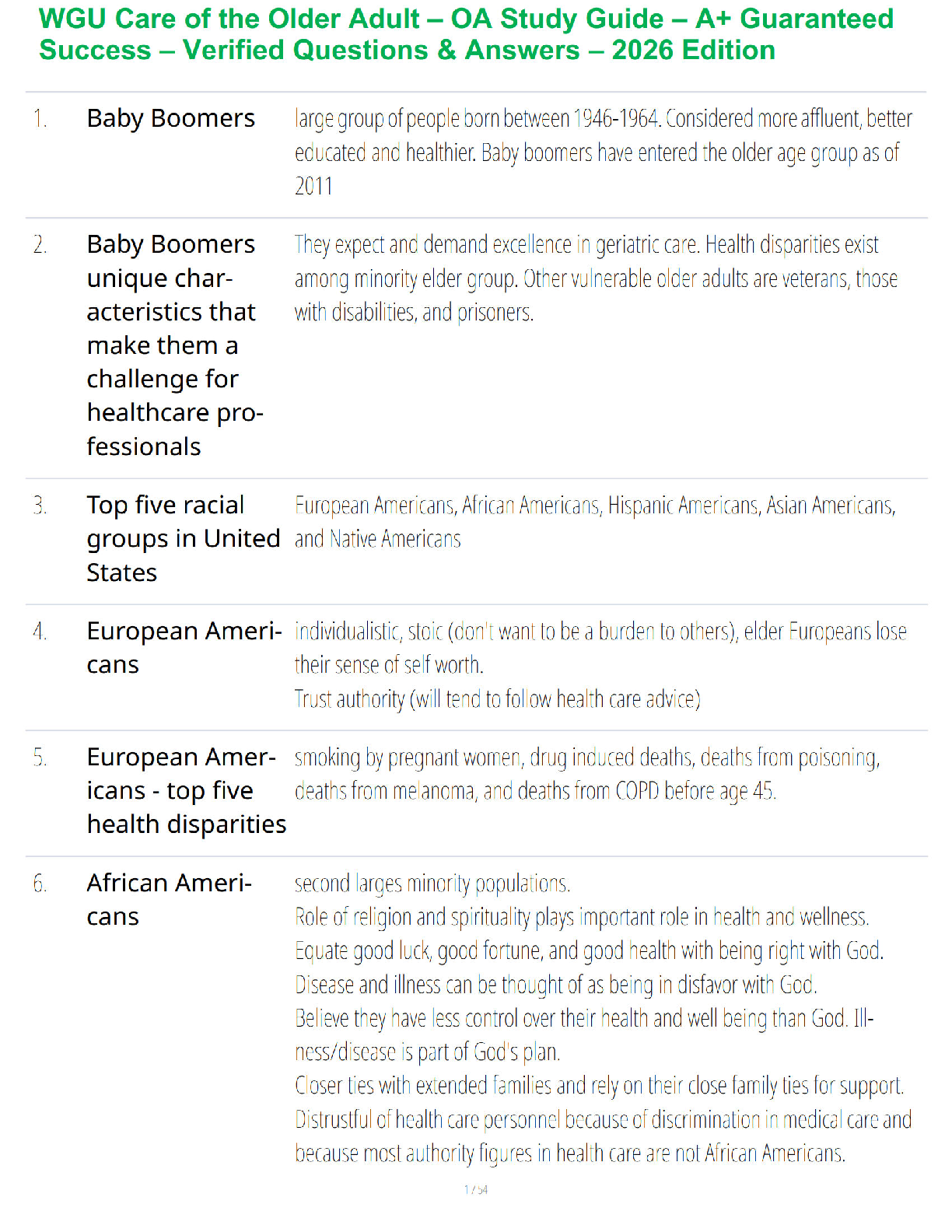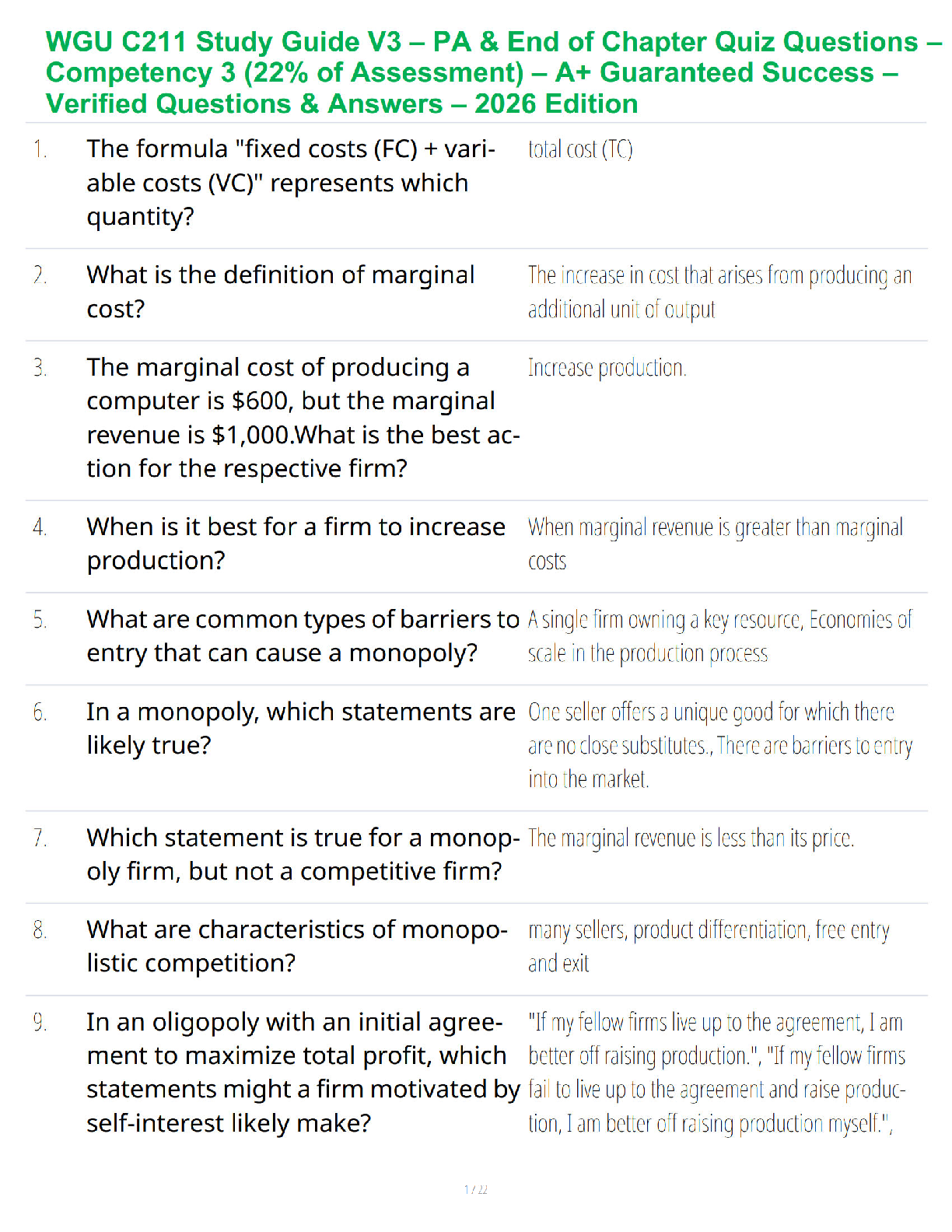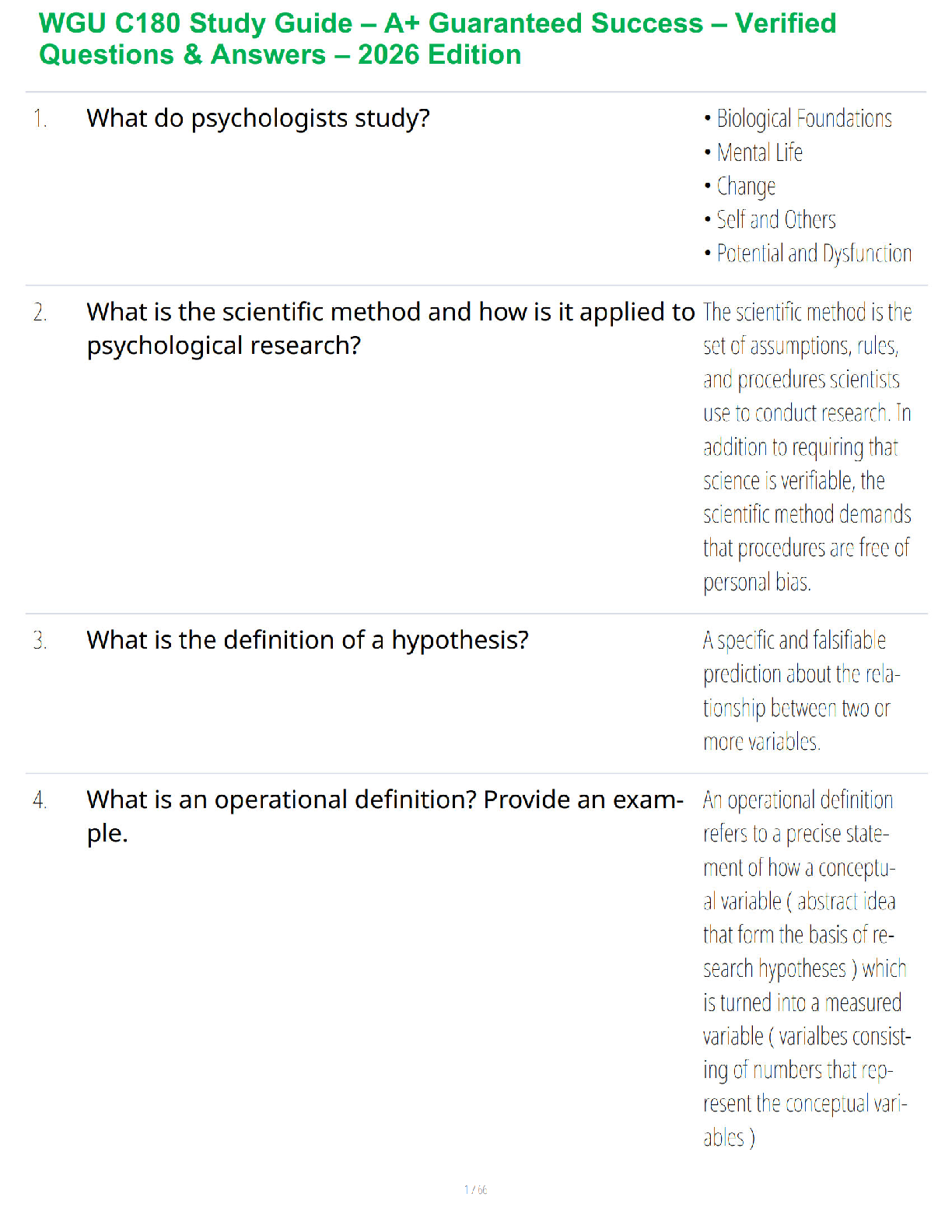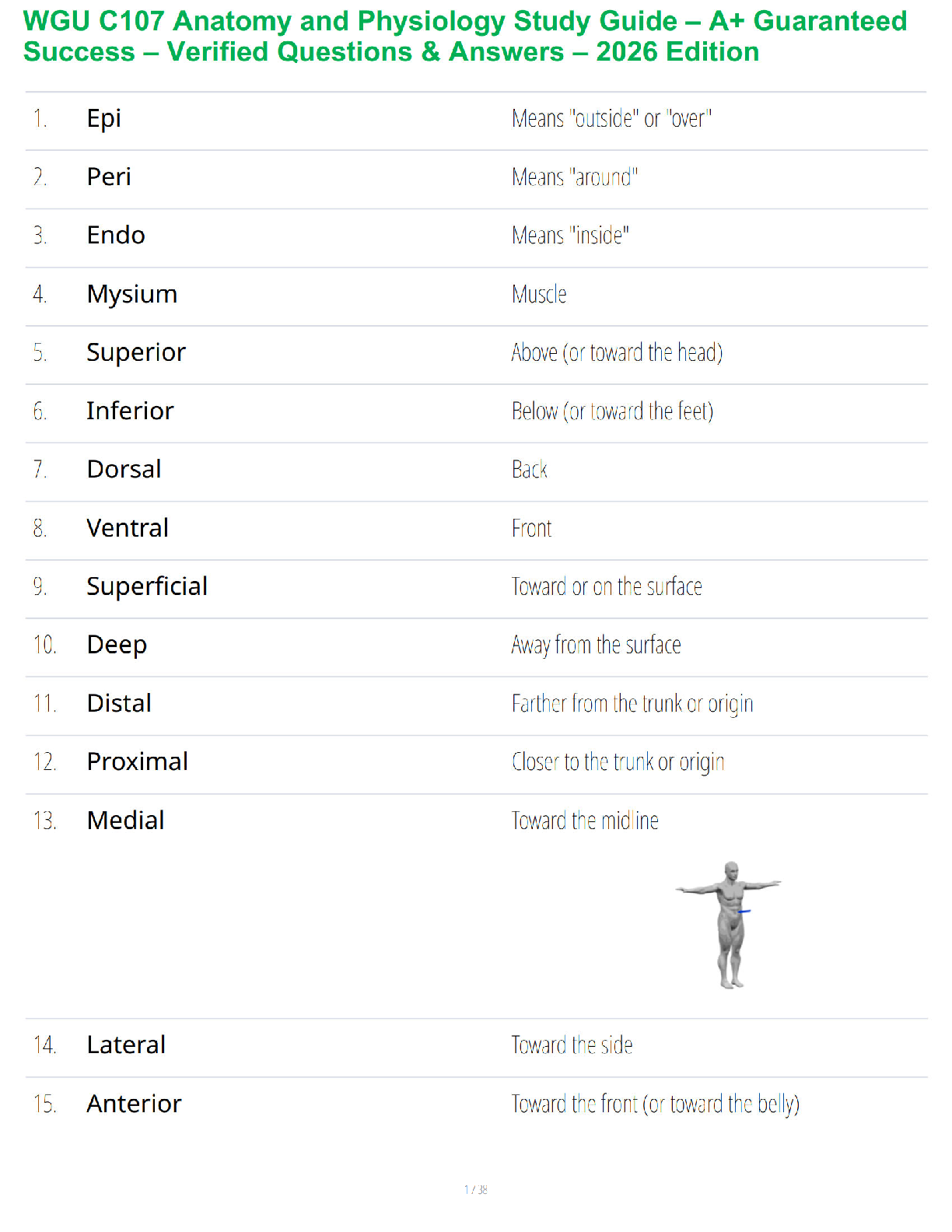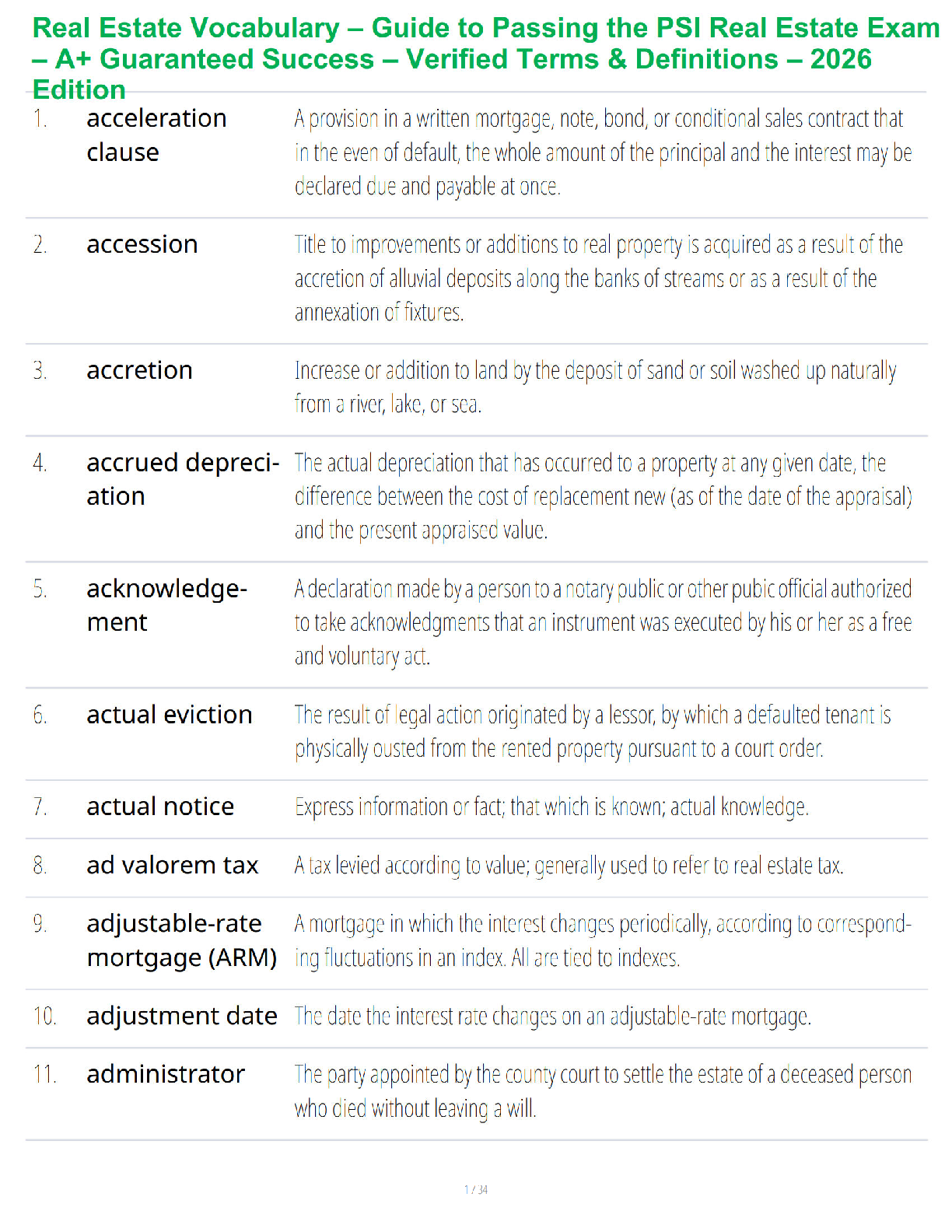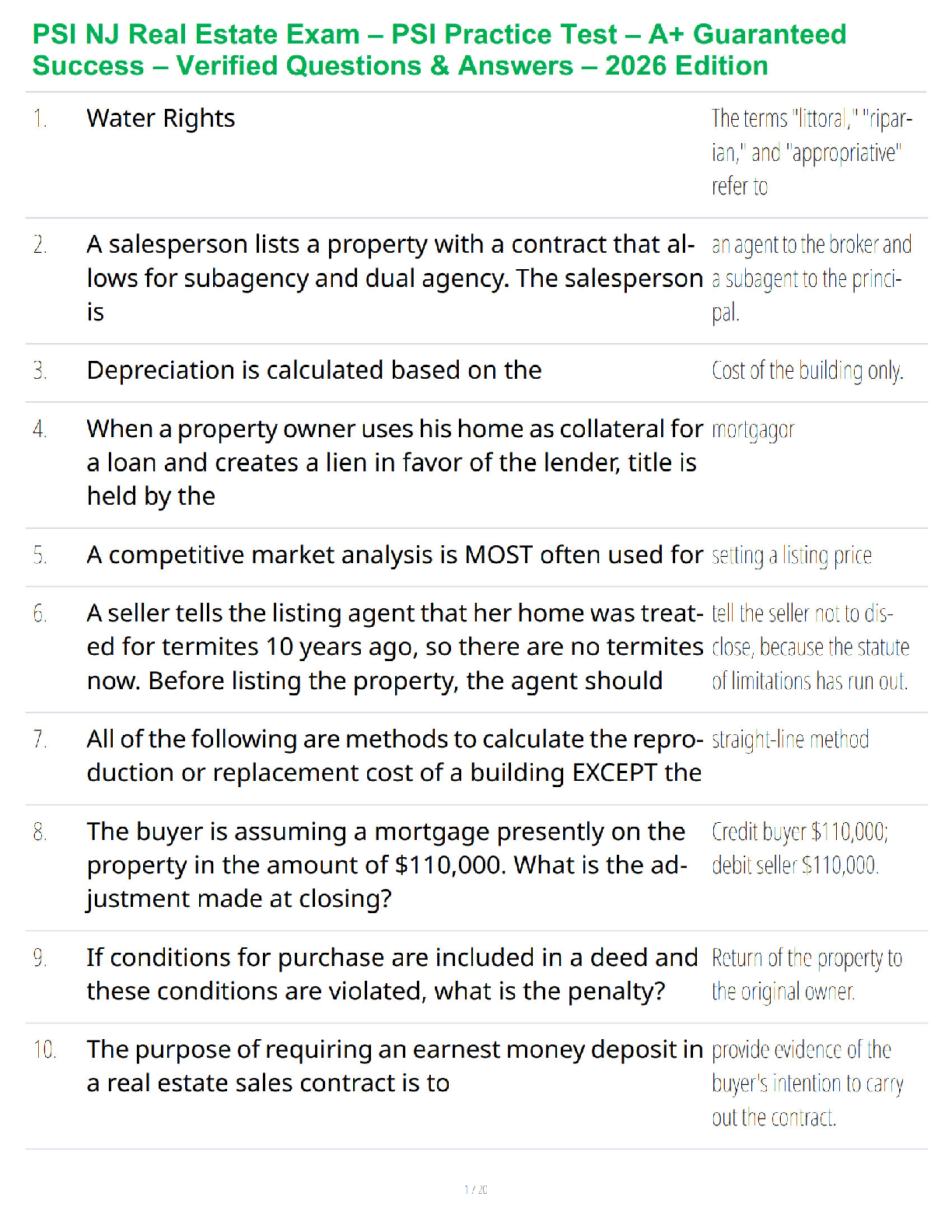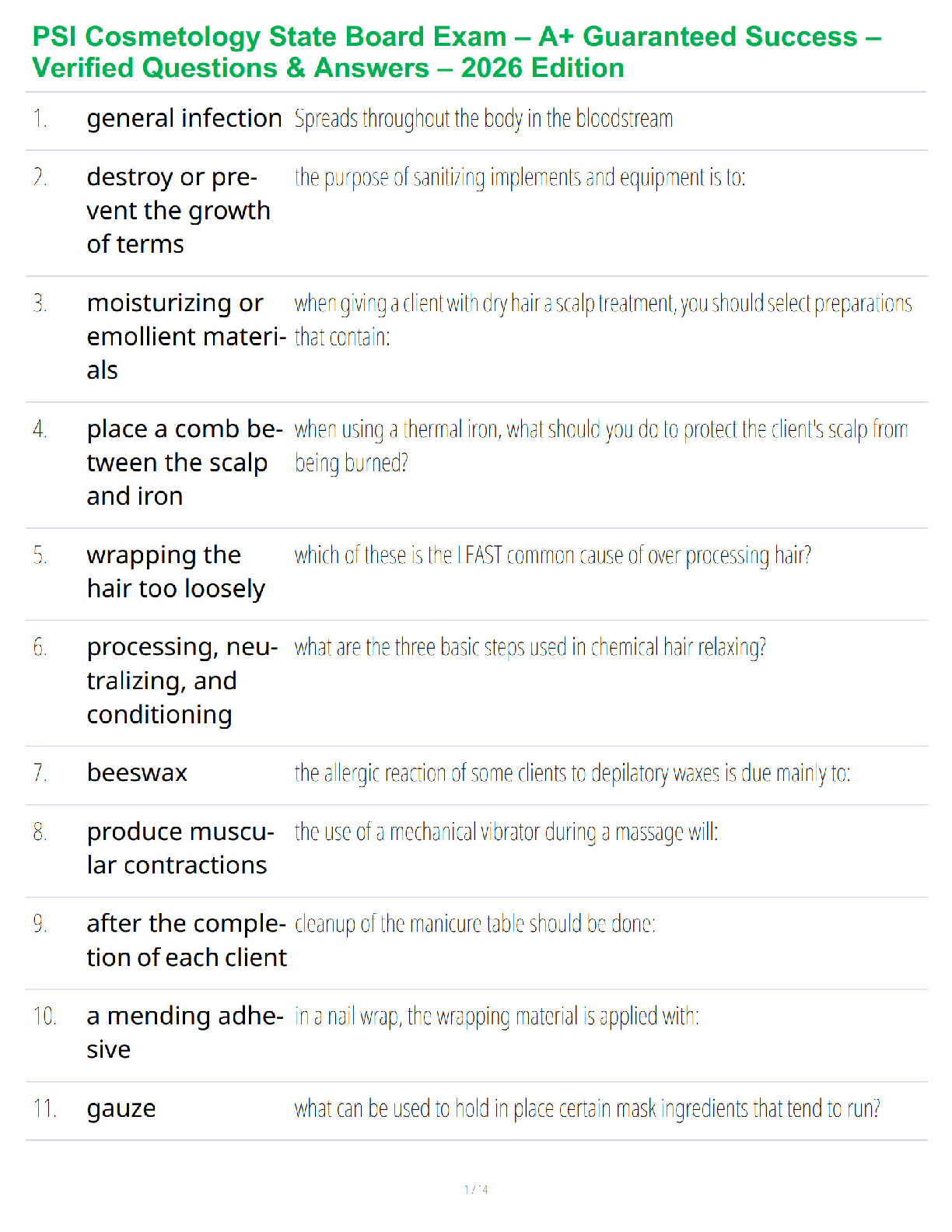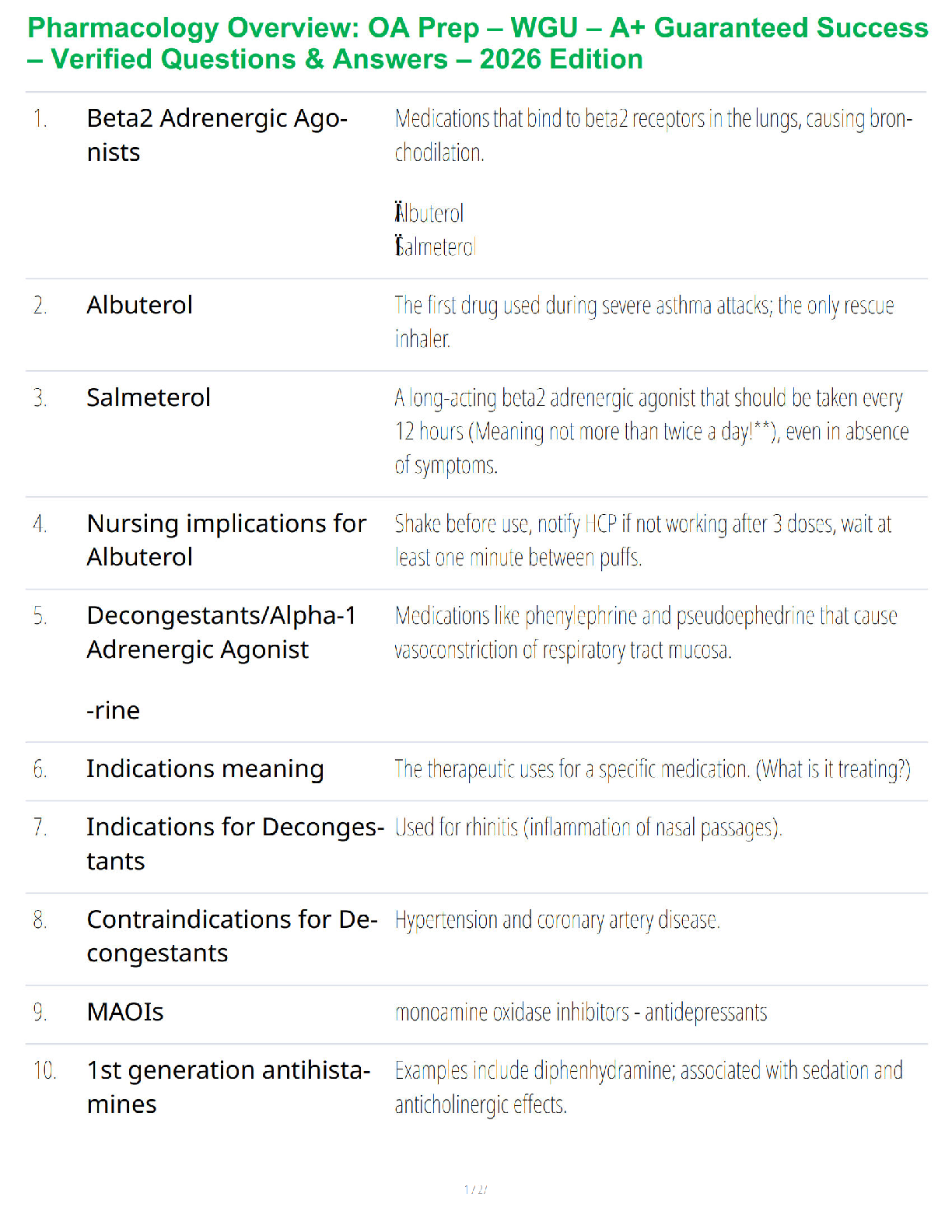NURS 419 Final Exam Study Guide 2021 Graded A
1. A nurse is planning care for a preschool-age child who is in the acute phase of Kawasaki disease. Which of the following interventions should the nurse include in the pla
...
NURS 419 Final Exam Study Guide 2021 Graded A
1. A nurse is planning care for a preschool-age child who is in the acute phase of Kawasaki disease. Which of the following interventions should the nurse include in the plan of care?
a. Give acetaminophen to control the child’s fever
b. Monitor the client’s cardiac status (PEDS p120)
c. Administer antibiotics via intermittent IV bolus for 24 hrs.
d. Provide stimulation with children of the same age in the play room
2. A nurse observes a client on the psychiatric unit muttering and standing near a window. The client states, “The voices are telling me to jump.” Which of the following is an appropriate response by the nurse?
a. “Do you recognize the voices as belonging to anyone you know?”
b. “I understand the voices are frightening you, but I do not hear any voices.”
c. “That can’t be true. The only voices in this room are yours and mine.”
d. “You shouldn’t be afraid when you think the voices are telling you to hurt yourself.”
3. A nurse is caring for a client who is preparing his advance directives. Which of the following statements by the client indicates an understanding of advance directives? (Select all that apply.)
a. “I need an attorney to witness my signature on the advance directives.” *(nurse witnesses it)
b. “I have the right to refuse treatment.”
c. “My doctor will need to approve my advance directives.” (just needs to write a prescription)
d. “My health care proxy can make medical decisions for me.”
e. “I can’t change my advance directives once submitted.” (yes, you can)
4. A client who is pregnant voices her concern that her 3-year-old son will feel left out once the newborn arrives. Which of the following statements by the nurse is appropriate?
a. “Offer your son a gift when the baby receives one.” (Provide a gift from the infant to give the sibling)
b. “Teach your son to change the baby’s diapers.”
c. “Tell your son to kiss the baby
d. “Move your son to a toddler bed when the baby arrives. (do this weeks prior to baby’s arrival)
5. A nurse is teaching a client who has nephrotic syndrome about dietary management. Which of the following instructions should the nurse include in the teaching?
a. Limit total daily sodium intake to 4 to 5 grams
B. Obtain most calories from complex carbohydrates
c. Consume a high-protein diet
d. Avoid intake of soy products.
6. A nurse is interviewing an adolescent client who has a history of physical aggression due to anger management issues. Which of the following is an appropriate question by the nurse?
a. “Did you think about removing yourself from the situation when you became angry?”
b. “Why do you get angry when things don’t go your way?”
c. “How do you think others feel when you express anger?”
D. “What are you thinking about when you express anger?”
7. A nurse is planning care for a client who has a sealed radiation implant and is to remain in the hospital for 1 week. Which of the following should the nurse include in the plan of care?
a. Wear a dosimeter film badge while in the client’s room. (Med Surg p583)
b. Ensure family members remain at least 3 feet from the client (should be at least 6ft)
c. Limit each of the client’s visitors to 1 hrs. per day. (should be 30 minutes)
d. Remove dirty linens from the room after double bagging.
8. A nurse is preparing to feed a newly admitted client who has dysphagia. Which of the following actions should the nurse plan to take?
[Show More]
